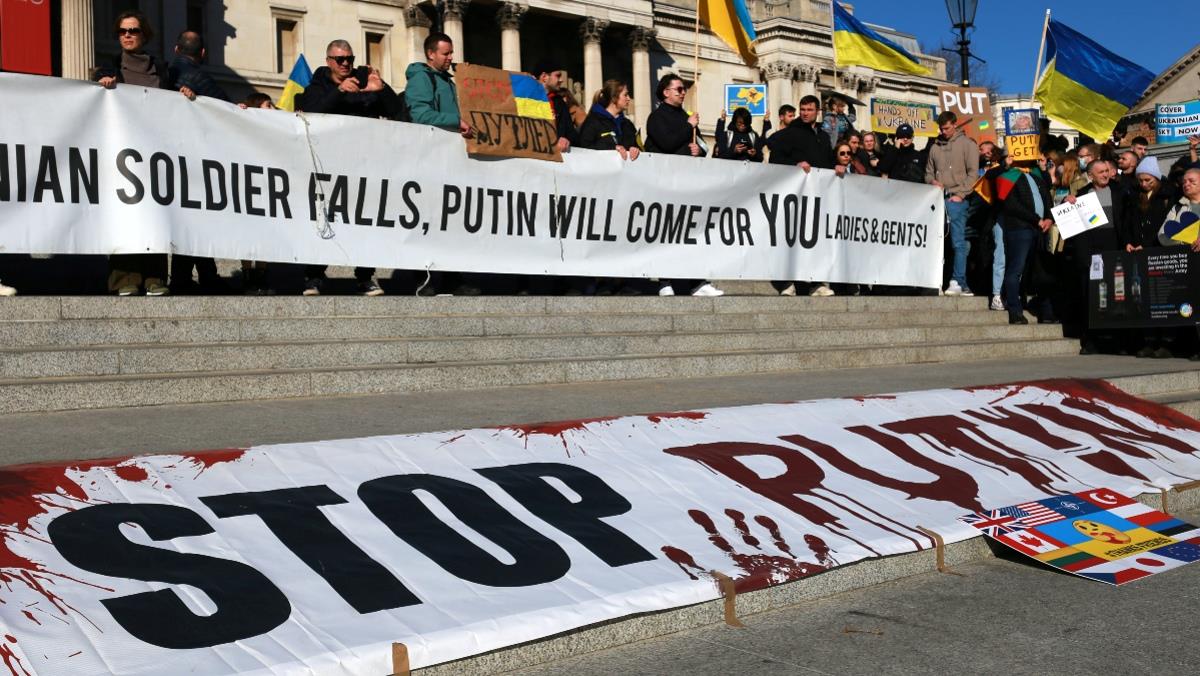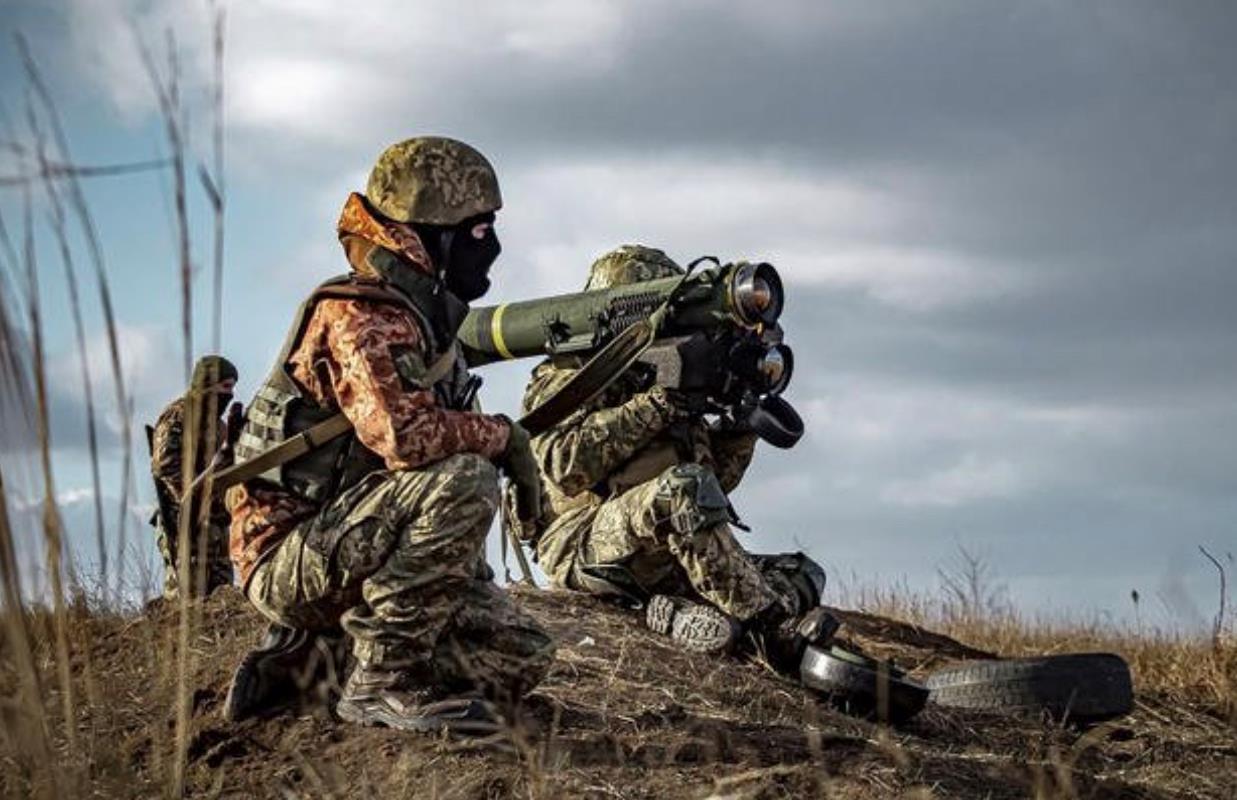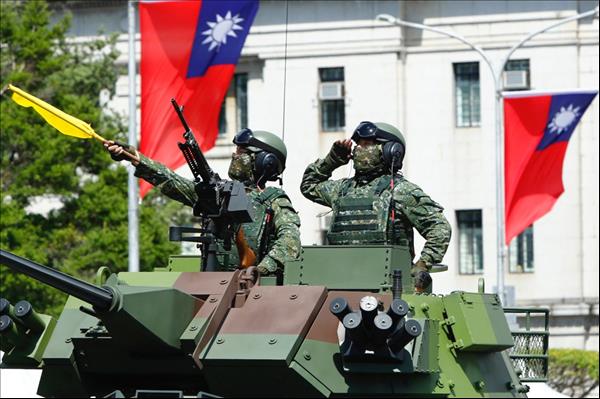
Russia's war fiasco rattles China, galvanizes Taiwan
Almost a month into Russia's invasion of Ukraine, there is still no definitive end in sight. Peace negotiations between the parties have shown some progress , with Ukraine now suggesting that it's willing to drop its commitment to join the North Atlantic Treaty Organization (NATO) but Russian President Vladimir Putin's military endgame is still shrouded in mystery.
Russia's bombardment of major Ukrainian cities continues unabated, exacerbating a humanitarian crisis that is spilling into Eastern Europe. but it's by now clear the invasion has not gone as planned in the face of stiff Ukrainian resistance. Shaken by its ally's armed intervention, which reportedly caught Chinese leaders by surprise, Beijing has painstakingly sought to have its cake and eat it too.
While projecting an image of a responsible power and claiming 'neutrality' over the crisis, China is allegedly aiding Russia's war efforts, according to top US officials. Hemmed in by a new barrage of international sanctions, Moscow is desperately seeking Beijing's assistance in order to keep its economy afloat and sustain its military offensive.
There are, however, growing signs that China is unwilling to shoulder the costs of its partner's strategic blunder. At least two prominent Chinse scholars, Wang Huiyao and Hu Wei have openly called on Beijing to distance itself from Russia's mishaps and help mediate an end to the conflict. China's Ambassador to Washington, Qin Gang, has been quoted claiming ,“Had China known about the imminent crisis, we would have tried our best to prevent it.”
But while a prevaricating China tries to distance itself from Russia's mishaps and minimize its potential exposure to crushing Western sanctions on Moscow, Taiwan has been carefully drawing lessons from the military quagmire. Ukraine's stiff resistance, which has exposed Russia's operational vulnerabilities, has inspired Taiwanese strategists as well as the broader population of the self-ruling island, which Beijing brands as a renegade province.
A new authoritative poll shows that more than 70% of Taiwanese citizens would be willing to militarily defend Taiwan in the event of war with China. There is also growing public support for overhauling military reservists' training and, if necessary, extending mandatory military service in order to ensure“total defense” against any prospective invasion by Taiwan's giant neighbor in the future.
No Chinese bailout
The true extent of China's foreknowledge of Putin's invasion plans is a hotly debated topic.
The Biden administration claims that Beijing chose to pass on US-acquired intelligence on Russian military plans in Ukraine to the Kremlin rather than trying to forestall the intervention. According to the New York Times , the US intelligence community found that“Beijing had shared the information with Moscow” and that“China would not try to impede Russian plans and actions.”
What's increasingly clear is that no one, including China, expected an actual Russian invasion to drag on for this long and so inconclusively. According to the British Ministry of Defens e, the Russian invasion of Ukraine has“largely stalled on all fronts” following“minimal progress” in multi-domain operations across land, air and sea .
Both Russia and China seem to also have underestimated the wherewithal of the West to impose a new barrage of crushing sanctions in response to the invasion of Ukraine.

A“Stop Putin” banner urges Russia to leave Ukraine in a London protest on February 27, 2022. Photo: Asia Times / Jeff Pao
With even Russia's Central Bank and top leadership now facing sanctions, an isolated Moscow is pinning its hopes on a Chinese bailout. Unable to access close to half of Russia's foreign currency reserves, Finance Minister Anton Siluanov has publicly announced his hope that“our partnership with China will still allow us to maintain the cooperation…where Western markets are closing.”
Last month, Sergey Karaganov, a Kremlin adviser, boasted“China is our strategic cushion. [w]e know that in any difficult situation, we can lean on [Beijing] for military, political and economic support.” But the new round of Western sanctions, and Russia's dismal performance on the military front, have likely caused China to rethink the extent of its commitment to the alliance.
While China can extract major concessions from an isolated Moscow, including heavily-discounted energy imports as well as access to strategic locations in and military technology of Russia, it also risks exposure to Western sanctions, if not international backlash. In recent weeks, the Beijing-based Asia Infrastructure Investment Bank (AIIB) has suspended loans to Russia, while Chinese companies have refused to supply Moscow with aircraft spare parts.
Since the bulk of Sino-Russian trade has been conducted in euros, new Western sanctions would effectively force Beijing to settle for either currency swaps involving Russian rubles, which has fallen by around 30% since the invasion, or lopsided barter trade, which could flood out Russian industries.
In an often-cited op-ed in the New York Times, Beijing-based academic Wang Huiyao made it clear that“[a]s Russia becomes isolated from the world economy, China will not want to shoulder Russia's economic burden alone.”
For his part, top Chinese scholar Hu Wei, vice-chairman of the Public Policy Research Center of the Counsellor's Office of the State Council, called on Beijing to prioritize“safeguarding its own interests” and accordingly“cut off as soon as possible” strategic ties with Putin. China's refusal to categorically back Russia in multiple UN resolutions and avowed openness to help mediate the Ukraine crisis is largely a reflection of its discomfort with Russia's disastrous intervention.
But while China has prevaricated on its ally's mishaps, Taiwan has felt increasingly reassured by Ukraine's tough resistance. To begin with, the self-ruling island nation is taking note of Ukraine's guerilla warfare tactics as well as highly effective deployment of NATO-supplied weaponry, including Stinger and Javelin anti-tank weaponry and TB2 drones, which have proven extremely effective against invading forces.

Ukrainian soldiers use a launcher with US-made Javelin missiles during military exercises in Donetsk region, Ukraine, on December 23, 2021. Photo: Ukrainian Defense Ministry Press Service
Boasting one of the world's best equipped armed forces , including state-of-the-art Western armaments , Taiwan now likely feels much more confident in repelling any potential amphibious invasion by China.
Taiwan has also likely been encouraged by the outpouring of military and diplomatic support by the West, which swiftly closed ranks in face of Russian aggression. Even though Ukraine is not a US treaty ally, the Biden administration has cleared $13.6 billion in defense aid to the European country. Major European powers, including Germany, have also decided to transfer high-impact weaponry to Ukraine, while coordinating increasingly tough sanctions on key sectors of the Russian economy.
Most crucially, Taiwan is also undergoing a massive transformation in public attitude towards any potential conflict with China. Up until last December, only 40% of Taiwanese respondents expressed their willingness to go to war in defense of the self-ruling island. In recent weeks, that number has jumped to 70.4% according to Taipei-based Taiwan International Strategic Study Society.
Moreover, there is growing public support for a Finland-style“total defense” doctrine , which ensures large numbers of Taiwanese civilians are capable of contributing to any major war effort. The Tsai Ing-wen administration is mulling an extension of the country's mandatory military service from four months to at least one year for men aged between 18 and 38 with greater focus on field operations and combat readiness. Recent surveys show that now close to 70% of Taiwanese support such a move.
President Tsai has been so inspired by Ukraine's resistance that she decided to donate, along with her top deputies, a full-month salary to relief efforts in the European country. “As a member of the global partners of democracy, Taiwan is not absent, and we fully support Ukraine,” the Taiwanese leader said, following her country's decision to also impose sweeping economic sanctions on Russia.

Legal Disclaimer:
MENAFN provides the
information “as is” without warranty of any kind. We do not accept
any responsibility or liability for the accuracy, content, images,
videos, licenses, completeness, legality, or reliability of the information
contained in this article. If you have any complaints or copyright
issues related to this article, kindly contact the provider above.


















Comments
No comment